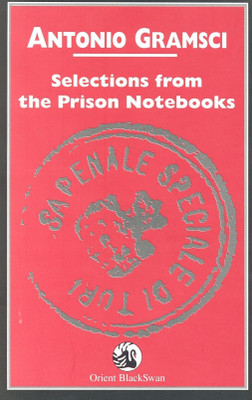Selections from the Prison Notebooks of Antonio Gramsci(English, Paperback, Hoare Quintin)
Quick Overview
Product Price Comparison
Antonio Gramsci was an Italian Marxist theoretician and politician who lived between 1891-1937. He was also a writer who had written on topics like political theory, sociology and linguistics. Gramsci was the founding member of the Communist Party of Italy and was imprisoned during Benito MussoliniŌĆÖs Fascist regime. This book is a collection of some of his essays that were carefully picked out from his notebooks that he wrote on during his time in prison. Summary of the Book Antonio GramsciŌĆÖs notebooks were written on between 1929-1935 when he was in prison. He could easily be called the most outstanding and original Marxist thinker in Western Europe during his time. The influence of his essays has been growing steadily and continually since it was first published in Italian. This took place soon after the Second World War. In this volume, the reader will find that it contains the most important notebooks of GramsciŌĆÖs where he has stressed on the role of intellectuals in the society, on education, history, politics, the modern state, and philosophy. Readers will notice the specialty of his books through the introduction and full apparatus of notes that sets his work in its historical and political background. The essays will also help you find your way into GramsciŌĆÖs way of thinking and have a major influence on the reader. About Geoffrey Nowell-Smith Professor Geoffrey Nowell-Smith did his honours with a first-class from New College, Oxford in Italian and French in the year 1962. He started off with being an Italian lecturer during the years 1964-1973 in the Universities of Manchester, Sheffield and Sussex. It was during this time that he had published a book on the Italian filmmaker Luchino Visconti. He was also co-editor of GramsciŌĆÖs Prison Notebooks. About Quintin Hoare Quintin Hoare was the co-editor of GramsciŌĆÖs Prison Notes. He was a British leftist intellectual and a literary translator. He had served on the editorial board of the New Left Review for many years. This was until he and his wife, Croatian historian Branka Magas, decided to resign in 1997. He later became the director at the Bosnian Institute.


